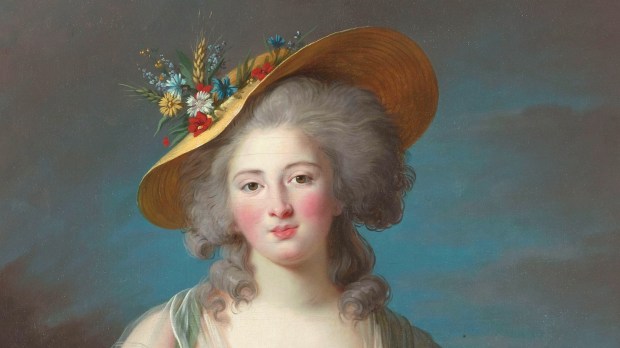Guillotined on May 10, 1794, at the age of 30, Madame Elisabeth, “the consoling angel,” freely chose to stay with her relatives, the royal family, to support them even to the point of sharing their tragic fate.
Her cause for beatification was reopened in 2017 and the diocesan phase of the process is underway. Her postulator, Fr. Xavier Snoëk, sees her as a fine example for many single people seeking to give meaning to their lives.
Despite her great piety, Elisabeth knew that she didn’t have a religious vocation. “She couldn’t stand enclosed spaces. An excellent equestrian, she needed wide-open spaces,” Fr. Xavier Snoëk says, explaining that this wasn’t really compatible with religious life.
“Very early on, she also knew that she wasn’t called to marriage. But she wanted to do something with her life.” Her celibate single life would bear fruit in her relationship with the poor, with her friends, and with her family.
With the poor
In addition to her commitments at Court, her studies (especially in mathematics), and her sporting activities, Elisabeth of France devoted much of her time to charitable works in her estate of Montreuil, which was attached to Versailles in 1787.
She visited and aided the poor of the neighborhood, also accompanying the doctor and treating the sick. The fame of the “Good Lady of Montreuil” spread. This life of charity was supported by a life of intense prayer and an unshakable faith in divine mercy.
With her friends
Princess Elisabeth was also a beautiful model of faithfulness in friendship. The king provided her with a household, and Madame Elisabeth faithfully kept her childhood friends and ladies-in-waiting at her side.
Her friendship with Angélique de Mackau, who became Marquise de Bombelles, and Marie de Causans, who became Madame de Raigecourt, lasted until her dying day. She didn’t abandon Madame de Guéménée either, even when she was banished from society because of her husband’s scandalous debts.
With her relatives
In the midst of the turmoil of the Revolution, Elisabeth understood that her Christian vocation was to accompany and support the royal family—no matter what happened. It’s a vocation that she followed to the letter, and which led her to perform heroic acts.
For example, on June 20, 1792, while demonstrators invaded the Tuileries and mistook her for Marie-Antoinette, she was ready to pass herself off as the queen: “Don’t disabuse them,” she said to her squire who wanted to correct their mistake. “If they take me for the Queen, there would be time to save her.”
Her abnegation and her fidelity were complete and incorruptible. She remained with her family, even though she had several opportunities to flee.
She could have left France when her aunts left, during a trip to Varennes (June 21, 1791), or when she returned to the Tuileries. She could’ve taken advantage of the escape plan set up by the Chevalier de Jarjayes. However, Marie-Antoinette refused to leave, and Elisabeth stayed with her and the children.
She supported and comforted the royal family, so much so that she was called “the consoling angel.” The image of this celestial figure was also evoked by her doctor, Dr. Dacy, who met her on her way to the scaffold: “I have just met an angel going to the scaffold,” he told his wife.
May Elisabeth of France inspire and accompany those who are called to be angels for the poorest of the poor, for their friends, and for relatives.
Here is the prayer she recited every day, which allowed her to live in peace and to support her family.
Prayer recited daily by Madame Elisabeth in the Temple prison:
O God, I do not know what will happen to me today.
All I know is that nothing will happen to me
unless you have foreseen it from all eternity.
That is enough for me, O God, to be at peace.
I adore your eternal Plans, and I submit to them with all my heart.
I want them all, I accept them all, and I make a sacrifice of everything to You;
I unite this sacrifice to that of your dear Son, my Savior,
asking You, through his Sacred Heart and through his infinite Merits,
for patience in my sufferings
and the perfect submission which is due to You
regarding all that You desire and allow.
Amen.


